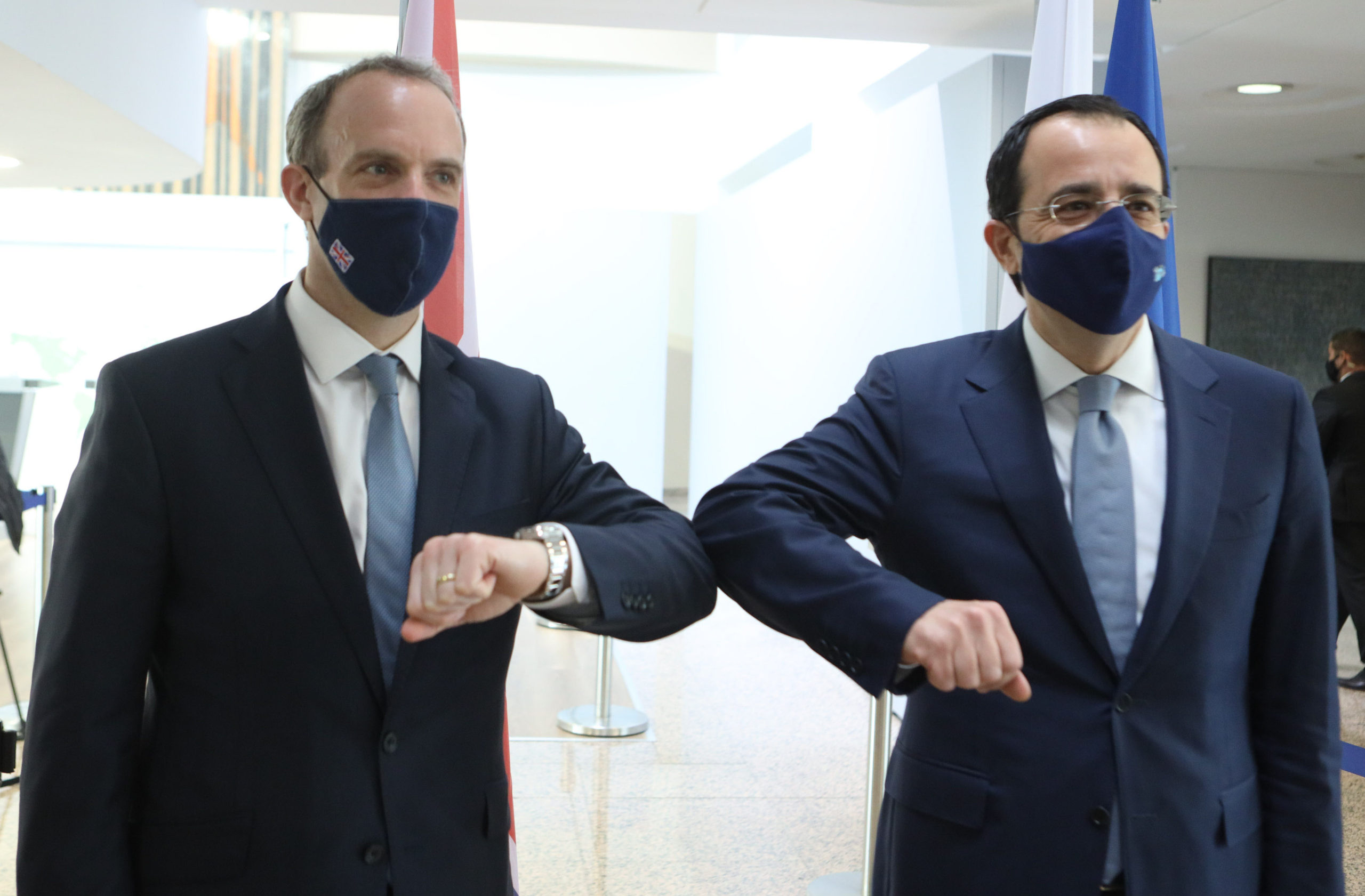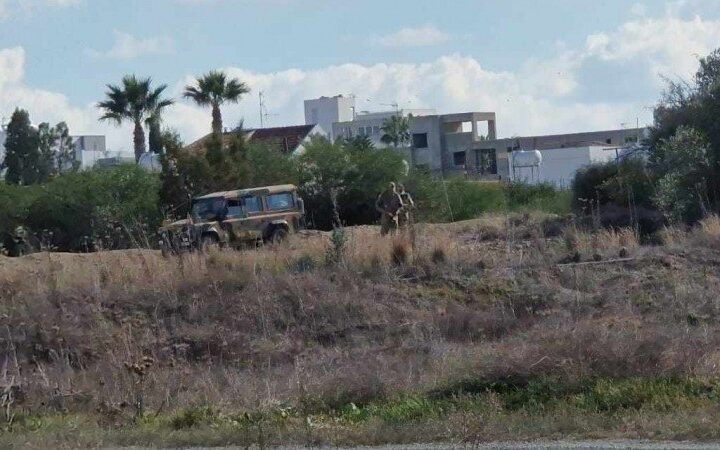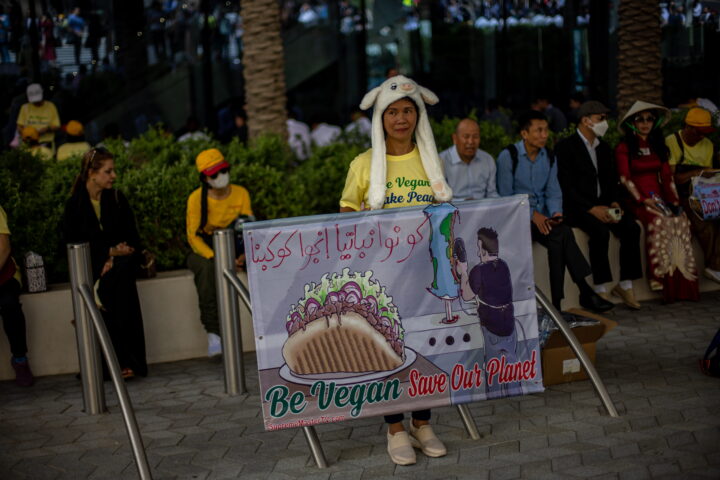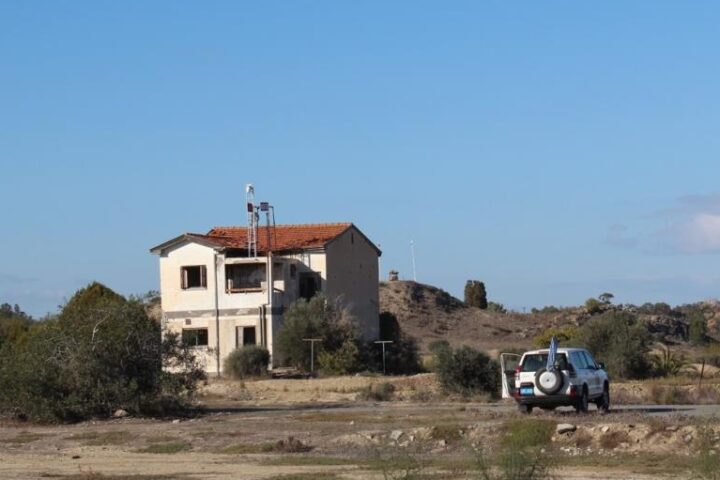UK Foreign Secretary Dominic Raab on Thursday pledged Britain would play a decisive role in ending decades-long division in Cyprus urging all parties to make progress at a United Nations summit.
“We will play our full role in helping to resolve the Cyprus problem,” said Raab after meeting Foreign Minister Nikos Christodoulides.
“We are a problem-solving nation, a guarantor power and a permanent member of the UN Security Council,” he added.
Prospects for the upcoming UN-led conference in March on starting Cyprus reunification is the main focus of Raab’s first official visit to Nicosia.
After meeting Cypriot President Nicos Anastasiades and Christodoulides he will cross the island’s UN-patrolled divide on Thursday to visit Turkish Cypriot leader Ersin Tatar.
As the first Foreign Secretary to visit the island since 2016, he underlined the UK’s determination for achieving a breakthrough in moribund Cyprus reunification talks.
“We want to see an end to the divisions on Cyprus,” said Raab.
“All parties should seize the opportunity presented by the UN Secretary General’s 5+1 talks.
“It is an opportunity to push for a settlement which will benefit both communities and enhance regional stability.”
UN Secretary-General Antonio Guterres is planning to host Cypriot leaders and government officials from the three guarantor powers of Cyprus (UK, Greece, Turkey) for talks in New York.
The summit will determine whether conditions exist to resume frozen Cyprus peace talks.
There have been no official UN-sponsored negotiations on the island’s future since a conference in Switzerland – also involving Britain, Greece, and Turkey – collapsed in July 2017.
Guterres is hoping to get the three governments more involved to build momentum that is currently lacking.
“Failure to reach a settlement will benefit no-one,” said Raab.
Obstacles to a new peace process are rising tensions in the eastern Mediterranean over conflicting claims to offshore oil and gas involving Turkey, Greece, and Cyprus.
The European Union has deplored Turkey’s drilling for hydrocarbons in disputed waters and warned Ankara against further “provocations”, while multiple countries have staged military drills in the region.
Turkish Cypriot leader Tatar is an advocate of a two-state solution or recognition for the self-proclaimed Turkish Republic of Northern Cyprus (TRNC), recognised only by Ankara.
Tatar was elected in October on a hardline platform of seeking a two-state solution for Cyprus, rather than a bicommunal federation. A view also supported by Turkey.
It diverts from the UN mandate of delivering a federal solution for a reunited Cyprus.
Cyprus has been divided since Turkey invaded and occupied its northern third in 1974 in reaction to a Greek-engineered coup aiming to annex the island.
Britain, Greece, and Turkey act as guarantors of the island’s sovereignty under the treaty that gave Cyprus independence from British rule in 1960.
Since then, Britain has retained two highly strategic sovereign military bases on Cyprus, one of them is RAF Akrotiri from where the UK launches airstrikes against Daesh in Iraq and Syria.
Britain is also a major troop contributor to the UN peacekeeping force in Cyprus (UNFICYP).
Raab will visit the British military serving with the UN and UN head of mission Elizabeth Spehar.
Following Raab’s visit, Greek Prime Minister Kyriakos Mitsotakis is due on the island Monday.










